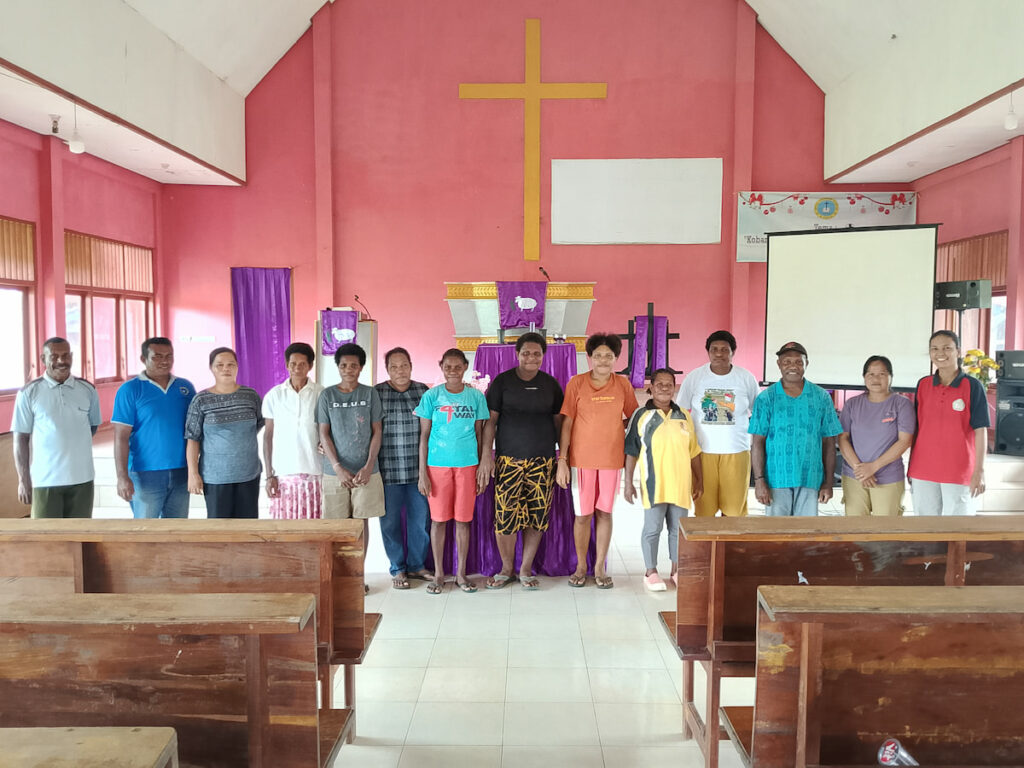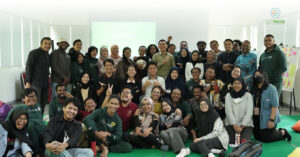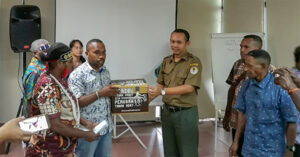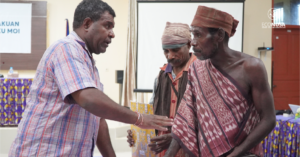
Coconut shells are commonly regarded as waste or used for traditional purposes such as cooking fuel or mosquito repellents. However, in the Okaba District of Papua, the Malind community has begun transforming these shells into charcoal briquettes—a compressed form of organic fuel suitable for domestic and industrial use.
This initiative is part of a broader collaboration between the Dahetok Milah Lestari Foundation (Yayasan Dahetok Milah Lestari/YDML), the Economic Development Agency of the Protestant Church in Indonesia (Badan Pengembangan Ekonomi Gereja Protestan di Indonesia/BPE GPI), and EcoNusa Foundation. The project aims to enhance the local economy while preserving environmentally grounded cultural values.
“The primary objective is to create employment opportunities and new sources of income for Indigenous Papuans. By harnessing the region’s abundant natural resources, we hope that communities will be able to improve their standard of living in a self-sufficient and sustainable manner,” stated Andreas Serhalawan, Director of BPE GPI.
Read Also: Kaimana Copra Distributed to National Markets
One of the key goals of developing coconut shell briquettes is to reduce dependency on forest wood, which has long served as the primary source of fuel. Utilizing coconut shell waste not only helps preserve forest ecosystems but also reduces waste, thereby supporting environmental cleanliness and minimizing pollution.
The briquette initiative is expected to deliver tangible economic benefits to the local population. Through targeted training and mentoring, community members are empowered to participate in the entire production process—from collecting coconut shells and processing them into briquettes to marketing the finished product. This comprehensive involvement enhances income-generating opportunities while fostering long-term economic independence.
In addition to briquette production, the community has also received training in laying hen management. The training cohort, which includes two men and eight women, reflects a strategic focus on empowering women. This training aims to equip participants with the necessary skills to manage laying hen operations, thereby supporting household income while also addressing nutritional needs.
Read Also: Cashew Nuts from Soa to Enhance Community Resilience
“This is a new experience for us as beginners. We hope to develop this initiative effectively through the training provided,” said Rev. Marel Pattipelohy, Chair of the Papua Okaba Classis of the Protestant Church.
The training sessions were conducted in collaboration with Yasanto Agricultural Polytechnic. Maya Novi Pelamonia, a lecturer from the institution, led the sessions and expressed optimism regarding the initiative’s potential. “We hope participants will apply the knowledge they’ve gained to develop independent and sustainable laying hen businesses,” she explained.
This program is intended as a foundational step for the residents of Okaba Village to improve their economic well-being through poultry farming. Furthermore, the involvement of women is expected to strengthen their role in household economic decision-making and promote gender equality at the community level.




